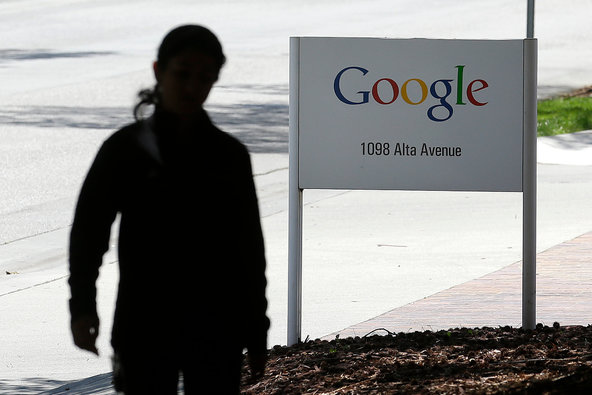 Jeff Chiu/Associated Press Google’s motion with the Foreign Intelligence Surveillance Court on Tuesday is the company’s latest move to control the public relations crisis that has resulted from revelations of government Internet surveillance.
Jeff Chiu/Associated Press Google’s motion with the Foreign Intelligence Surveillance Court on Tuesday is the company’s latest move to control the public relations crisis that has resulted from revelations of government Internet surveillance.
Google on Tuesday filed a motion with the secret Foreign Intelligence Surveillance Court, asking permission to publish data on national security requests that were made to it and authorized by the court.
The motion is the company’s latest move to control the public relations crisis that has resulted from revelations of government Internet surveillance. It is an escalation of Google’s efforts to publish the data. Last week, it sent a letter to the director of the F.B.I. and the director of national intelligence, asking for the same thing.
By law, recipients of national security requests are not allowed to acknowledge their existence. But with the permission of the government, Facebook, Yahoo, Microsoft and Apple have in the last few days published aggregate numbers of national security and criminal requests, including those authorized by the Foreign Intelligence Surveillance Act. Google has not, because it said that would be less transparent than what it had already published. Its transparency report has since 2010 broken out requests by type, and if it agreed to the same terms the other companies did, it would not be able to publish the report that way in the future.
In the motion, Google argued that it had a First Amendment right to publish a range of the total number of requests and the number of users or accounts they cover.
Google said that its executives had responded to allegations — that it cooperated with the government in Internet surveillance — as best they could, given the government’s restraints on discussing them. But the company said that it wanted to do more for the sake of its reputation, business and users, and for the sake of public debate.
“Google’s reputation and business has been harmed by the false or misleading reports in the media, and Google’s users are concerned by the allegations,” the motion said. “Google must respond to such claims with more than generalities.”
The tech companies have been pressing to be able to publish the number of government requests largely to prove that the requests cover a tiny fraction of users. Though the other companies said they were also pushing the government for permission to publish more detailed data, they said the aggregate numbers were useful to control speculation by setting a ceiling on the number of requests.
Other tech companies affected by the government’s surveillance program, called Prism, have considered going to the secret court, an option that is still on the table, according to two people briefed on the discussions. So far, the companies have been individually negotiating with the government instead of acting in concert.
Still, even if they are allowed to publish more detailed numbers, it would leave many questions unanswered, including details of how Prism works. Also, the number of people affected by FISA requests could be much larger than the number of requests, because once the government makes a broad request, it can add individuals and additional search queries for a year.
Google’s motion also revealed that two of its top lawyers, Kent Walker and Richard Salgado, have security clearance, which FISA requires for handling classified legal orders and materials. It was filed on behalf of the company by Albert Gidari, a partner at the law firm Perkins Coie who has earned a reputation in tech and legal circles as the go-to man on surveillance law.
A version of this article appeared in print on 06/19/2013, on page B9 of the NewYork edition with the headline: Google Asks Court to Allow Data Release.
Article source: http://bits.blogs.nytimes.com/2013/06/18/google-asks-secret-court-for-permission-to-publish-national-security-request-data/?partner=rss&emc=rss
